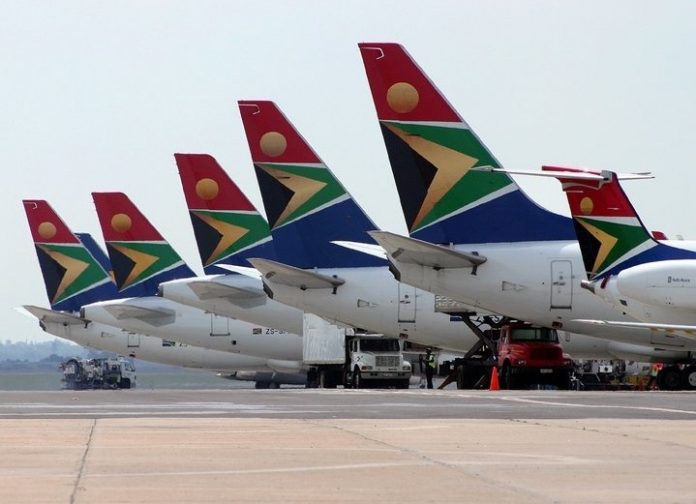South African Airways (SAA) resumed some regional flights but warned that only a deal with striking unions can resolve its current crisis, as the government said it has no more money for the cash-strapped state carrier.
The airline has cancelled hundreds of flights since the strike began on Friday, with the stoppage initially costing 50 million rand ($3.36 million) per day, though that figure has come down as some flights have resumed.
It has also jeopardised talks with lenders, SAA said.
The carrier met with the unions and South Africa’s public enterprises minister Pravin Gordhan on Tuesday morning, but SAA acting chairwoman Thandeka Mgoduso said Gordhan had reiterated that there is nothing in the public coffers for the airline.
“The statement is the same, there is no more money,” she told a news conference, adding that SAA would continue talks with the unions in the afternoon.
“The players who will resolve this … are SAA and the unions, not the minister.”
She later told Reuters that the government had not made any recommendations on what the airline should do to end the strike over job cuts and wages.
SAA has not made a profit since 2011 and has relied on state bailouts for its survival.
A spokeswoman for the National Union of Metalworkers of South Africa (NUMSA), which called the strike alongside the South African Cabin Crew Association (SACCA), said the unions had given the minister a framework for ending the strike and solving SAA’s financial problems.
A statement issued by the Department of Public Enterprises said the government was committed to saving the airline, but not with money, with repeated bailouts becoming a “moral hazard”.
It said the minister had urged the unions to work with SAA, with the ultimate aim of saving both the airline and jobs. But this would “require everybody to make sacrifices”.
CONDITIONAL OFFER
Another large union at SAA, the National Transport Movement (NTM), is not participating in the strike and says it has a mandate from members to accept the offer of a 5.9% wage increase for the next financial year.
However, it will only do so if the airline removes a clause saying it is conditional on the company having sufficient funds for the increase.
SAA executives said roughly a fifth of the SAA workforce was still on strike. About 11,000 passengers had been scheduled to fly with the airline on each day of the action so far.
NUMSA and SACCA threatened on Sunday to extend the strike to members at more airlines and other organisations across the industry.
The strike has cast doubt over SAA’s survival hopes. SAA says it needs to cut headcount to restore profitability and is unable to raise its wage offer any further because of its dire financial situation.
Acting finance chief Deon Fredericks told the conference that a multibillion-rand loan being negotiated with banks to provide working capital would, once secured, leave SAA in a much better position to cope with the impact of the strike.
If this is not in place by February, he later told Reuters, SAA would look for other lenders.
The government is still looking for an equity partner for the airline, but SAA must stabilise first, he said, a process that could take at least two years.
In the meantime, other executives said that a few hundred workers had returned to work despite the strike, enabling SAA to resume some regional flights. International flights had already resumed but domestic flights remain grounded






